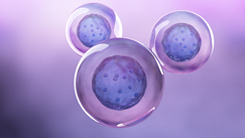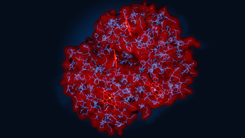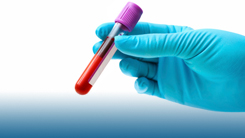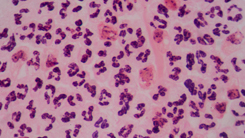HOW CAN WE HELP YOU? Call 1-800-TRY-CHOP
Rivella Laboratory
The Rivella Laboratory has expertise in the use of lentiviral vectors for modulation of gene expression and gene transfer for the cure of hemoglobinopathies, and in the pathophysiology and genetics of several murine models of hematopoiesis-, inflammation-, and iron-related disorders. Investigators in the lab are generating several lentiviral vectors aimed at curing beta-thalassemia and sickle cell anemia, and the team works with various murine models of hemoglobinopathies and patient cells to characterize these vectors.
The lab is also studying the role of seminal factors contributing to the morbidity and mortality in ß-thalassemia, polycythemia vera, and hemochromatosis; and in anemia of inflammation, such as hepcidin, intereleukin-2, ferroportin, the phosphokinase Jak2, and macrophages. Based on some of these studies, the lab is developing or contributing to the characterization of novel therapeutics.

Stefano Rivella, PhD
Investigator
Dr. Rivella is an expert in the pathophysiology of erythroid and iron disorders and in the generation of lentiviral vectors for the cure of hemoglobinopathies. He also investigates additional disorders such as anemia of inflammation and hemochromatosis.







